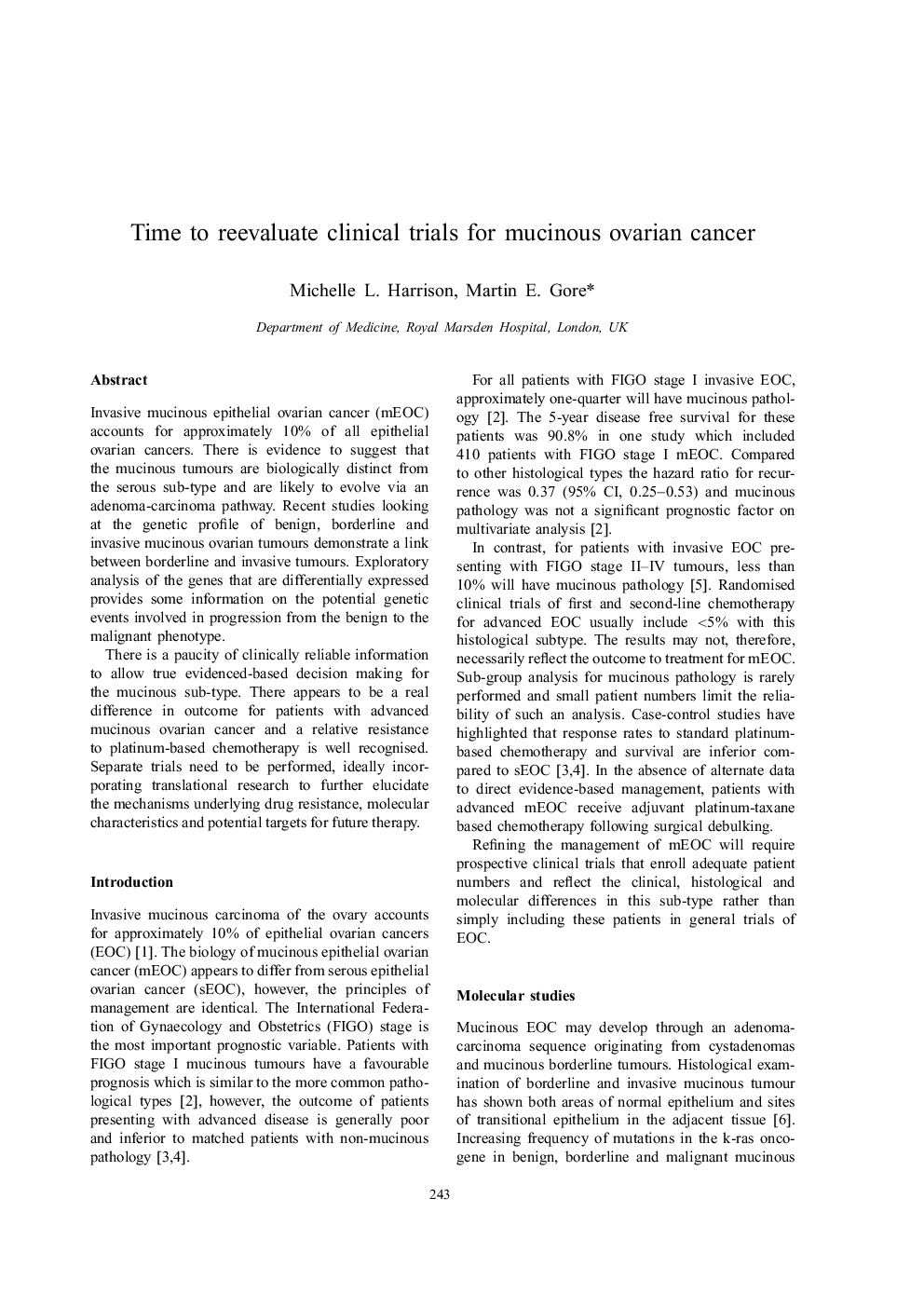| Article ID | Journal | Published Year | Pages | File Type |
|---|---|---|---|---|
| 2129622 | European Journal of Cancer Supplements | 2007 | 4 Pages |
Invasive mucinous epithelial ovarian cancer (mEOC) accounts for approximately 10% of all epithelial ovarian cancers. There is evidence to suggest that the mucinous tumours are biologically distinct from the serous sub-type and are likely to evolve via an adenoma-carcinoma pathway. Recent studies looking at the genetic profile of benign, borderline and invasive mucinous ovarian tumours demonstrate a link between borderline and invasive tumours. Exploratory analysis of the genes that are differentially expressed provides some information on the potential genetic events involved in progression from the benign to the malignant phenotype.There is a paucity of clinically reliable information to allow true evidenced-based decision making for the mucinous sub-type. There appears to be a real difference in outcome for patients with advanced mucinous ovarian cancer and a relative resistance to platinum-based chemotherapy is well recognised. Separate trials need to be performed, ideally incor- porating translational research to further elucidate the mechanisms underlying drug resistance, molecular characteristics and potential targets for future therapy.
